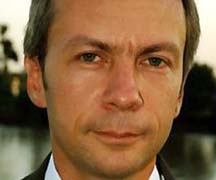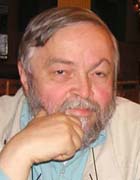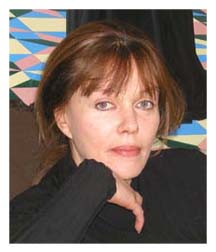Offshore, Scoops

Dec 2003
Alexei Golubovich, longtime partner of Mikhail Khodorkovsky, is the target of legal action in Switzerland by his former associate Yelena Collongues-Popova and is being investigated by a Geneva judge on her charge of forgery.
Golubovich has not been indicted by Russian prosecutors, though they are interested in talking to the former Yukos finance director who has reportedly fled to London. However, he could be indicted by the Swiss.
Collongues-Popova, who for half a dozen years ran some 30 offshore companies for Golubovich, got a court order in Switzerland that froze $4.2 million she says represents loans he owes a company she owns. Swiss investigative magistrate, Claude Wenger, is looking into her criminal complaint that Golubovich forged her signature to avoid paying the loans.
Offshore, Scoops, Tax Evasion

The Russia Journal, Nov 28, 2003
Two ex-bankers on Wednesday, Nov. 26, filed a criminal complaint with the Swiss attorney general against Mikhail Khodorkovsky, Platon Lebedev, and Alexei Golubovich, accusing them of money laundering and support for a criminal organization.
The Russia Journal has obtained a copy of the report. The Journal asked Yukos press office to comment on the charge but no comments were received.
The former bankers have requested the federal officials in Switzerland to open an investigation into the charges and to search the records of the Swiss offices of Menatep SA, Menatep Finances SA and Valmet (in liquidation) and of Bank Leu related to investigate claims of fraud against the Russian company Avisma and money laundering by Menatep in Switzerland.
Corporate Abuses, Major Past Articles, Offshore, Scoops

The Russia Journal, Nov 5, 2003
The charges against key shareholders in Yukos are enormous and very varied in scope. The Yukos tale is a long, complex and controversial one, requiring lengthy and painstaking substantiation. Public interest in the Yukos controversy is very high.
However charges and counter charges, mostly of a political nature, are being flung so wildly about in the media that The Russia Journal believes it essential at this stage to focus on the evidence in the accusations against Mikhail Khodorkovsky and his partners. His innocence of the charges that have been filed against him must be presumed until a competent trial is held.
Those who support his innocence of the charges are invited to review and comment on this, the first in a Russia Journal series on the case against him and others in Menatep Group.
Offshore, Scoops

Nov 2003
A business group headed by Russia’s richest man, Mikhail Khodorkovsky, who was arrested in October for allegedly defrauding the state of $1 billion, stashed money in offshore centers, including Switzerland, Luxembourg, the British Virgin Islands, the Seychelles, Panama and the Bahamas, according to Yelena Collongues-Popova, who worked for one of Khodorkovsky‘s associates. Lucy Komisar, a New York investigative reporter, interviewed Collongues- Popova. This is her story.
PARIS — A French woman of Russian origin, with thousands of papers related to the Menatep business group and its offshore banking and dealings over the past decade, has been providing information to Russian prosecutors who are building a case against oil tycoon Mikhail Khodorkovsky, the richest man in Russia, who was arrested in October for tax evasion.
She says she set up numerous offshore companies and bank accounts in the Caribbean and Europe to help the Menatep group cheat Russian company shareholders and tax authorities. Her registered agent in the Caribbean was Icaza Gonzalez Ruiz and Aleman in the British Virgin Islands and Bahamas, against which she now has a legal action. She says she used Bank Leu (Bahamas), a subsidiary of Bank Leu, Geneva, to deposit funds in fiduciary accounts to have the benefit of withholding tax exemptions.
Art/Dance, Travel
Paris has always been stimulating to the artistic soul and also a little outrageous. There are two edgy museums with art that pushes the most controversial boundaries – sex and politics. And both also defy the staid notion that museums are only for solemn daylight viewing. They are he Museum of Erotic Art in Montmartre, and the Palais de Tokyo near the Arc de Triomphe.
Travel
Where would you want to live if you lived London? What neighborhood has elegance, charm, sophistication and also sense that it’s for real residents, not for tourists, nor for moguls or diplomats or businessmen on expense accounts? Where do you get a sense of community, but also a location near some of the museums, royal landmarks and parks that London is famous for?
My choice would be Kensington, an upscale neighborhood in West London, just south of Hyde Park, close enough in fact to walk to the park, as well as to Royal Albert Hall, the Royal College of Music, the Albert and Victoria Museum and especially to Kensington Palace.
Offshore, Scoops
The American Reporter, May 27, 2003
It hasn‘t been reported in the U.S. press – until here, now – but Milan, Italy’s chief prosecutor has obtained thousands of documents that show how for more than 20 years Saddam Hussein used the Western bank and corporate secrecy system to launder bribes skimmed from oil revenues to pay his security forces and buy Western arms during international embargoes.
The key countries – whose governments openly allow these money-laundering systems to exist – were Switzerland, Liechtenstein, Panama and Nassau. Corporate registrations and bank accounts there use straw men and secrecy rules to cover up true owners of companies and accounts.
Offshore, Scoops
Dissent Magazine, Spring 2003
In November 1932, deputy Fabien Albertin took the floor of the National Assembly in Paris to denounce tax evasion by eminent French personalities-politicians, judges, industrialists, church dignitaries, and directors of newspapers-who were hiding their money in Switzerland.
The minister of finance knows very well that for ten years, the concern of all his predecessors has been to track down this fraud . . . he declared. However, till now, the information one has gotten has been extremely vague. When documents arrive, they are formless notebooks in which holders of accounts are represented only as numbers. Employees of the banks don’t know the names of account holders. These names are known only to the director of the bank, who the clients forbid to correspond with them, so anxious are they to preserve anonymity.
Offshore, Scoops
Multinational Monitor, March 2003
AT A TIME WHEN THE INTEGRITY of global accounting firms is being questioned, the U.S. Securities and Exchange Commission (SEC) and Justice Department are looking into charges that KPMG Zurich, a division of the international audit company, helped Credit Suisse hide hundreds of millions of dollars looted by the late Philippine dictator Ferdinand Marcos.
A KPMG spokesperson confirmed the investigation.
Offshore, Scoops
Sacramento Bee, Feb 23, 2003
American officials fear that Belarus is the middleman for Russian weapons sales to Iraq, according to last week’s Newsweek. The magazine noted that Leonid Kozik, a Belarus official who visited Iraq last fall, is on the board of a Russian-Belarussian company that markets weapons from those countries.
Iraq is subject to a U.N. arms embargo. If Iraq is getting Russian weapons through Belarus — either with the approval of Russian officials or via corrupt private firms — it refocuses attention on the destabilizing impact of the criminalization of the Russian state and the uncontrolled expansion of the world’s arms bazaar. Both developments have been largely ignored by Washington, with failure to confront Russian corruption a legacy of the Clinton administration and refusal to deal with weapons sales a result of the longtime political influence of arms-makers.
Corporate Abuses, Offshore, Scoops
In These Times, Jan 17, 2003
Trade unions, workers‘ pension funds and state officials are taking the lead in a campaign to prevent companies from reincorporating in Bermuda and other tax havens”and to bring back those who‘ve already gone.
Arguing that offshore registrations allow corporations to evade taxes, reduce shareholder rights and threaten the security of investments, the AFL-CIO, individual unions and pension funds such as California‘s Public Employees Retirement System (CalPERS) are filing shareholder resolutions and going to court against companies that move their paper headquarters offshore, where corrupt corporate executives have an easier time cooking the books.
Offshore, Scoops
Asia Times, Jan 8, 2003
At a time when the integrity of global accounting firms is being questioned, the US Securities and Exchange Commission (SEC) and Justice Department are looking into charges that KPMG Zurich, a division of the international audit company, helped Credit Suisse hide hundreds of millions of dollars looted by the late Philippine dictator Ferdinand Marcos. A KPMG spokesperson confirmed the investigation.
Dan Burton, a conservative Republican congressman, wrote the SEC that he had been informed that the agency has been presented with evidence against KMPG concerning money-laundering and subversion of a joint Philippine and Swiss freeze order for a series of accounts containing millions of US dollars. Burton, a member of the US House of Representatives International Relations Committee, requested prompt action by the SEC in seeking out the truth. The SEC passed on its information to the Justice Department.




